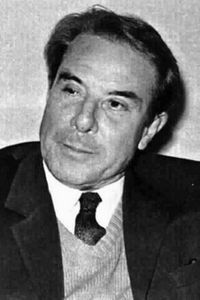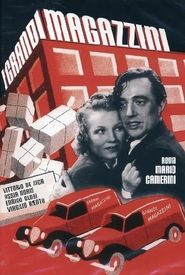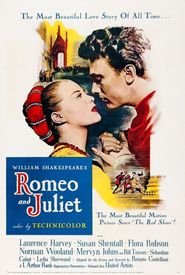Renowned Italian film director and screenwriter Renato Castellani was born on September 4, 1913, in Varigotti, Italy, to a representative of the iconic photography brand Kodak. His mother, who had previously resided in Argentina, relocated to Italy to give birth to Renato, marking a significant event in his life.
Renato spent his childhood in Argentina, specifically in the vibrant city of Rosario, where he was immersed in the local culture. However, his life took a dramatic turn when he returned to Italy at the age of 12. This move had a profound impact on his formative years, shaping his perspectives and influencing his future endeavors.
After settling back in Italy, Renato resumed his studies in Genoa, eventually transferring to Milan to pursue his academic goals. His dedication and hard work paid off when he graduated from the prestigious Polytechnic University with a degree in architecture.
Renato's professional journey in the city of Milan took an intriguing turn when he crossed paths with Livio Castiglioni, a fellow visionary who shared his passion for innovative audio experimentation. Together, they embarked on a series of radio projects for the GUF, a Fascist University Group, where they pushed the boundaries of sound editing techniques, exploring uncharted territories in the realm of audio storytelling.
As his career in the film industry began to take shape, Renato's path converged with that of Mario Camerini, a renowned Italian filmmaker, in 1936. Camerini entrusted Renato with the role of military consultant on his film, "The Great Appeal", marking the beginning of a fruitful collaboration that would see Renato work alongside some of Italy's most prominent filmmakers.
His expertise as a film critic soon earned him recognition, and he went on to collaborate with industry giants such as Augusto Genina, Mario Soldati, and Alessandro Blasetti, honing his skills and expanding his network of influential contacts in the Italian film industry.
Renato's directorial debut, a milestone in his illustrious career, was the cinematic masterpiece "A Pistol Shot" in 1942, a film co-written with renowned author Alberto Moravia and based on the esteemed story by Aleksandr Puskin. This groundbreaking work, along with the equally impressive "Zazà" (1942),contributed to the development of the innovative caligraphism genre.
Throughout his illustrious career, Renato continued to make significant contributions to the film industry, directing a wide range of films that showcased his versatility and artistic vision. Some of his notable works include "Under the Sun of Rome" (1948),a film that further solidified his reputation as a master filmmaker, as well as "It's Forever Springtime" (1950) and "Two Cents Worth of Hope" (1952). These films, in particular, played a pivotal role in the emergence of the "pink neorealism" genre, a style that blended elements of neorealism with a focus on the lives and experiences of ordinary people.
Renato Castellani's cinematic accomplishments knew no bounds, with his notable films including the iconic "Romeo and Juliet" (1954),which earned him the prestigious Golden Lion award at the 1954 Venice Film Festival. His impressive repertoire also boasts the critically acclaimed "Dreams in a Drawer" (1957) and the action-packed "The Brigand" (1961). As his career progressed, Renato's focus shifted towards television, where he directed a series of biopics in episodes, including the fascinating "The Life of Leonardo da Vinci" (1971) and the equally captivating "The Life of Verdi" (1982). Tragically, Renato Castellani's life came to a close on December 28, 1985.



























